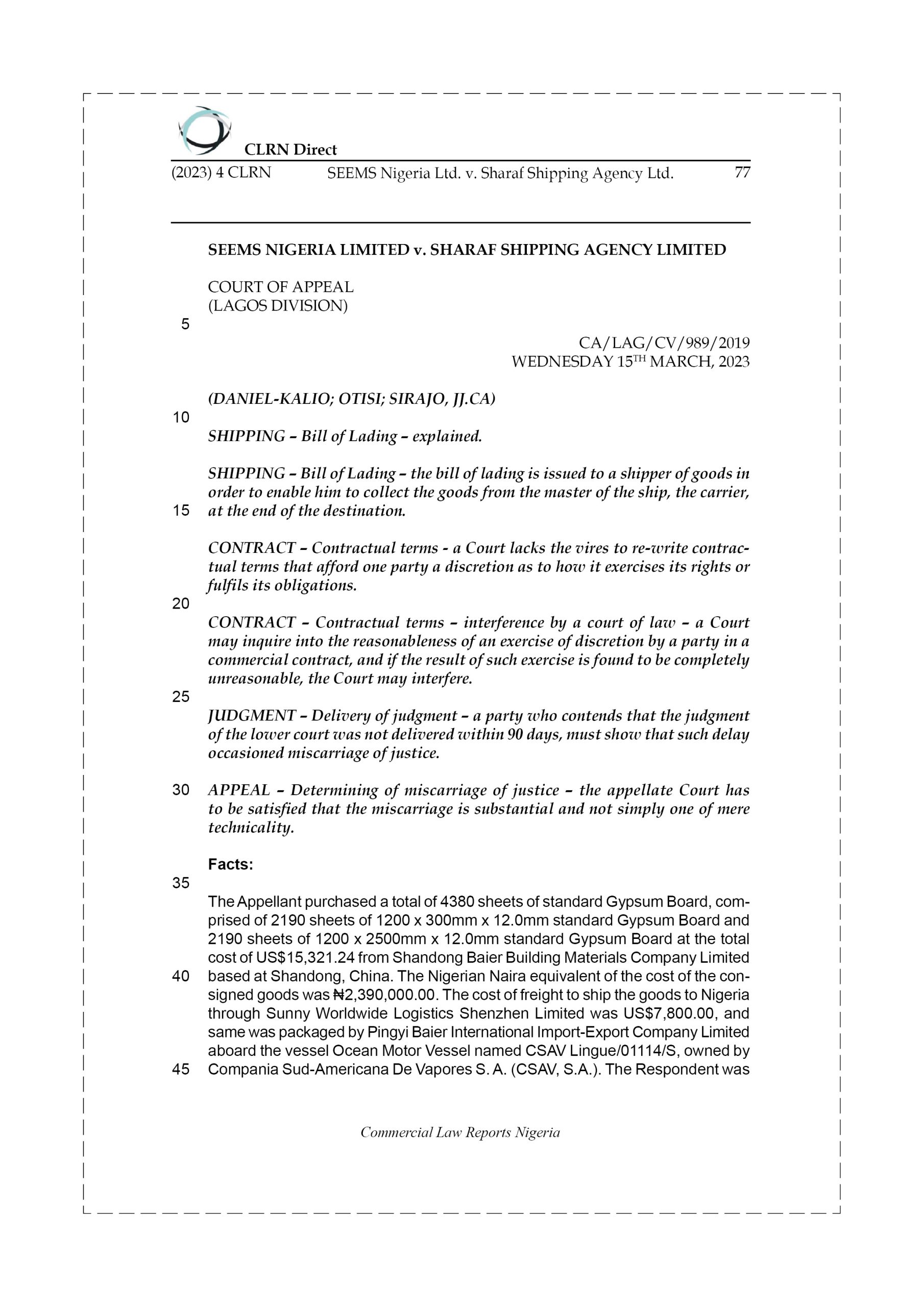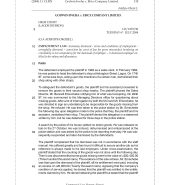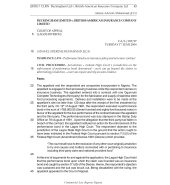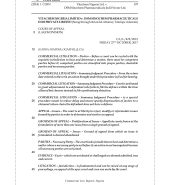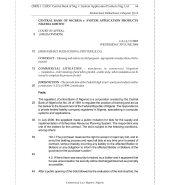-

OCTOBER 2004 - Volume
- kg
1 × ₦4,000
-

Continental Iron & Steel Co. Plc v. Tejumola Nig. Ltd & Anor
- kg
1 × ₦1,000
-

Buckingham Ltd v. British-American Insurance Company Ltd
- kg
1 × ₦1,000
-

MEKWUNYE v. EMIRATES AIRLINES
- kg
1 × ₦1,000
SEEMS NIGERIA LTD. v. SHARAF SHIPPING AGENCY LTD.
₦1,000
In Stock
Facts:
The Appellant purchased a total of 4380 sheets of standard Gypsum Board, comprised of 2190 sheets of 1200 x 300mm x 12.0mm standard Gypsum Board and 2190 sheets of 1200 x 2500mm x 12.0mm standard Gypsum Board at the total cost of US$15,321.24 from Shandong Baier Building Materials Company Limited based at Shandong, China. The Nigerian Naira equivalent of the cost of the consigned goods was ₦2,390,000.00. The cost of freight to ship the goods to Nigeria through Sunny Worldwide Logistics Shenzhen Limited was US$7,800.00, and same was packaged by Pingyi Baier International Import-Export Company Limited aboard the vessel Ocean Motor Vessel named CSAV Lingue/01114/S, owned by Compania Sud-Americana De Vapores S. A. (CSAV, S.A.). The Respondent was the Nigeria Shipping agent of the said company. The case of the Appellant was that the Bill of Lading No. PBNDR5Z00, issued in favour of the Appellant, was lost by STO Courier Service, which was engaged by Sunny Worldwide Logistics Shenzhen Limited. When the vessel berthed at the Apapa Port, Lagos, Nigeria, the Appellant’s director was verbally informed by the Respondent that the cargo would be released upon the Appellant fulfilling some conditions in lieu of presentation of the original bill of lading. These conditions were:
i. Affidavit of loss of original bill of lading;
ii. Newspaper advert to the effect that the original bill of lading is missing; and
iii. Police report.
The Appellant obtained and presented the said documents to the Respondent. However, the Respondent further requested a Bank Guarantee to cover the value of the consignment, which the Appellant obtained, But the Respondent rejected the said Bank Guarantee and requested for another Bank Guarantee to cover 200 of the value of goods to be valid for a tenor of 2 years. The Appellant, in compliance with the new directives of the Respondent, obtained another Bank Guarantee from Union Bank of Nigeria Plc, but the Respondent again rejected the said Bank Guarantee from Union Bank of Nigeria Plc on the ground that Union Bank of Nigeria Pic was not a First Class Nigerian Bank. As a result of the Respondent’s unending demands, which the Appellant saw as being unreasonable, the Appellant instituted this action at the Federal High Court (lower court), seeking certain reliefs, which the Respondent contested against.
At the conclusion of the hearing, the learned trial Judge in the judgment dismissed the Appellant’s claims, holding that the Appellant had failed to meet the conditions for the release of its cargo by the Respondent.
Dissatisfied with the decision of the lower Court, the Appellant appealed to the Court of Appeal.
